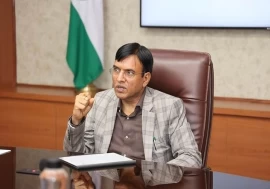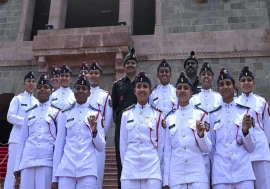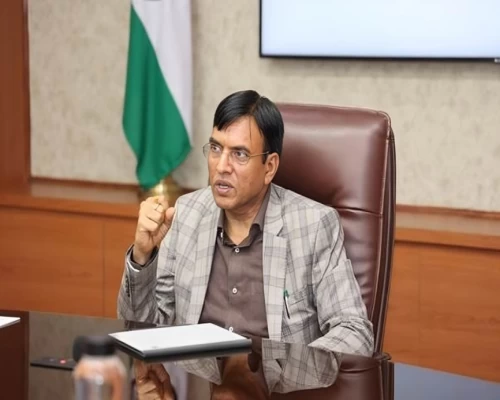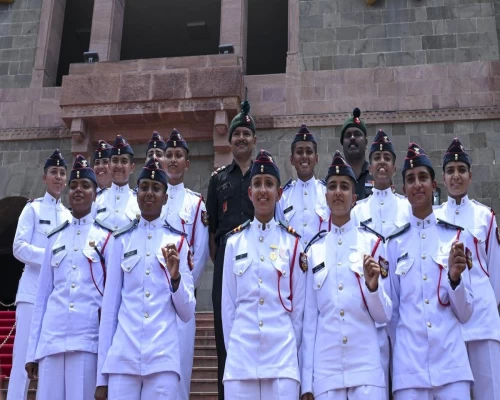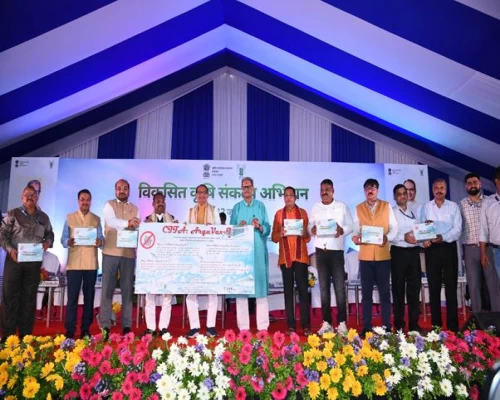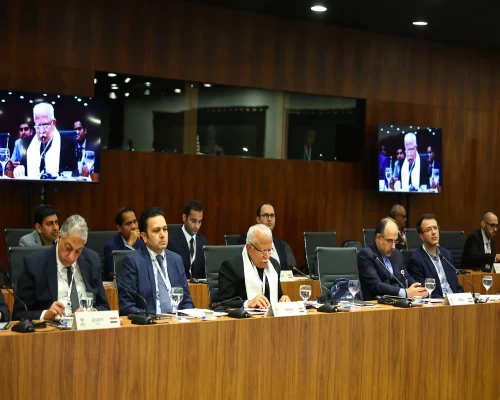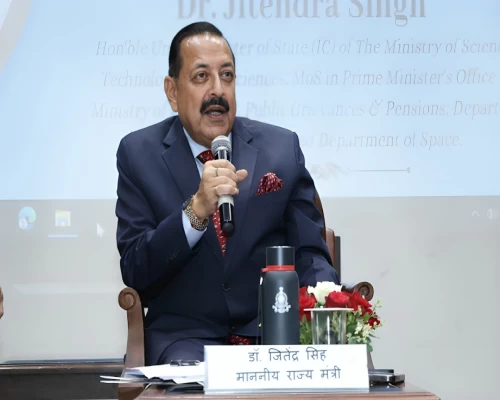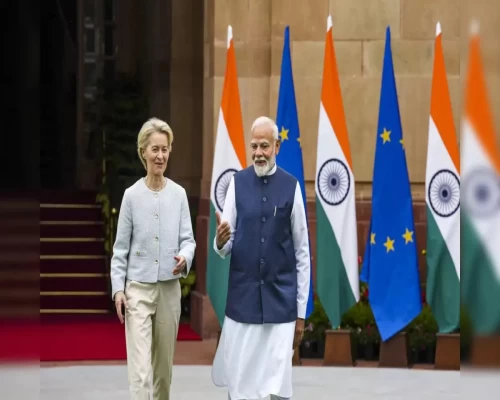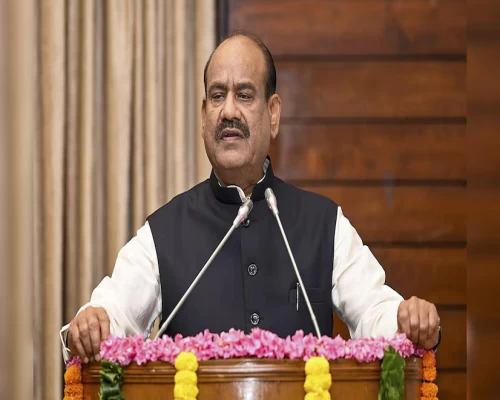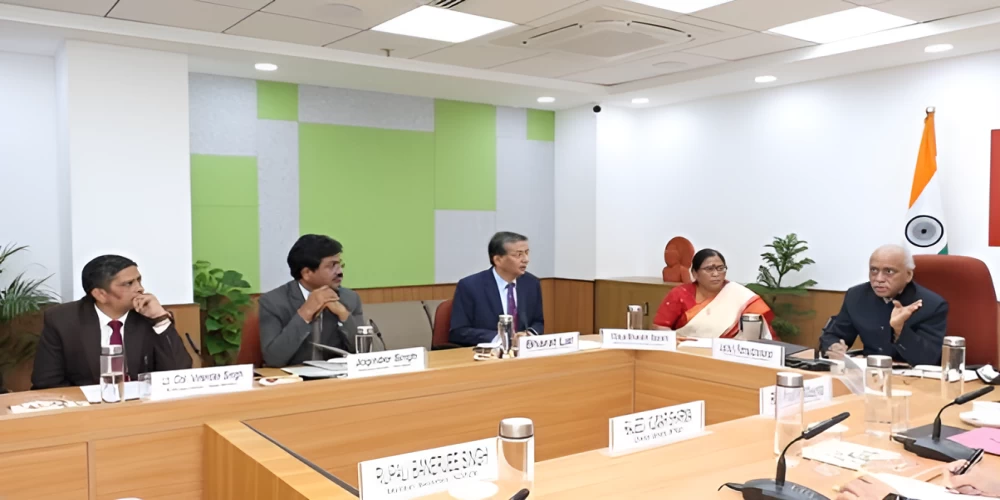
New Delhi: Justice V Ramasubramanian, while chairing the meeting of the Commission’s Core Group on Children on the theme 'Human rights of children in conflict with law', reiterated the need for reliable data. The meeting was attended by Member Vijaya Bharathi Sayani, Secretary General Bharat Lal, senior officers, and experts in the field at NHRC’s premises in New Delhi.
The discussion highlighted two key concerns—how to collect data and how to authenticate the existing data on children in conflict with the law. The Chairperson supported the suggestion to form a working group of experts to verify available data, particularly concerning age and numbers, in consultation with the Bureau of Police Research and Development (BPR&D), National Crime Records Bureau (NCRB), National Legal Services Authority (NALSA), and High Courts.
The Chairperson also called on experts in juvenile justice care to separate their recommendations into long-term and short-term measures. These could include amendments to laws, modifications to rules, or the implementation of standard operating procedures. He agreed with the proposal to organise state-wise meetings of Juvenile Justice Boards, District Legal Services Authorities, State Legal Services Authorities, and NHRC to develop strategies for counselling, rehabilitation, and reintegration into families.
Referring to the UNICEF-supported report ‘Rights of Children in Conflict with the Law 2007’, Justice V Ramasubramanian expressed hope that NHRC’s core group could develop solutions aligned with the report’s recommendations, including diversion programmes for juvenile offenders. The key aspects of these programmes include:
* Juvenile offenders must admit to the crime.
* They should not be placed in custody to participate in diversion programmes.
* They are entitled to a court procedure if they or their guardians disagree with the diversion measures.
* They may withdraw from the diversion process at any time and opt for a formal court procedure.
* The diversion programme includes victim-offender mediation, admonition, local community corrections councils, joint family meetings, circle trials, juvenile courts, and community service.
The report suggests that while crimes are often viewed as offences against the state, they should also be seen from the victim's perspective, promoting reconciliation. Allowing juveniles to make amends to society can help them reintegrate without a criminal record, reducing future employment and social exclusion issues.
Before this, NHRC, India Secretary General Bharat Lal said the Commission is committed to protecting and promoting child rights. It has been conducting consultations on various human rights issues affecting children and issuing advisories as needed. This discussion on children in conflict with the law was organised to identify challenges and suggest measures for improving the juvenile justice system, with a focus on juveniles in adult prisons, those in correctional homes, and rehabilitation efforts. He stressed that juveniles must be seen as victims of circumstances rather than just offenders, and rehabilitation efforts should aim to integrate them into society with better opportunities.
NHRC, India Director Lt. Col Virender Singh provided an overview of the meeting and the three critical areas of discussion concerning children in conflict with the law.
Several experts and senior officers, including Rajeev Kumar Sharma, Director General, BPR&D; Isha Pandey, DIG, BPR&D; Balkrishan Goel, NHRC Special Monitor on Children; Amod K. Kanth, Founder and Mentor, Prayas Juvenile Aid Centre (JAC) Society; Vijay Raghavan, Tata Institute of Social Sciences; Sourabh Ghosh, CRY; Swagata Raha, Legal Researcher and Head of Restorative Practices, Enfold India; Anant Kumar Asthana, Child Rights Lawyer; and Deepshikha, Prayas Juvenile Aid Centre (JAC) Society, shared their insights and recommendations. NHRC Director General (I) Ram Prasad Meena and Registrar (Law) Joginder Singh were also present.
Discussions led to several recommendations, including making information on proceedings involving children in conflict with the law available on a secure portal without revealing identities, establishing a dedicated child protection workforce in all states, and strengthening legal aid mechanisms for such children. Other key recommendations included social audits of child care institutions, improving rehabilitation and reintegration programmes, and increasing community service as a corrective measure. There was also a call for joint training of stakeholders involved in child welfare, documenting best practices, and increasing funding and staff recruitment for child care institutions.
The Commission will further deliberate on these suggestions and refine its recommendations to strengthen the protection of the human rights of children in conflict with the law.
BI Bureau


